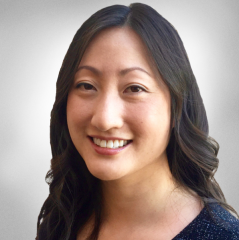
Campus academic advising
Psychology, MS
Thank you for your interest in our campus-immersion MS Psychology program! Please review the information on this page to find out if this program is the right fit for your interests, our doctoral and career placement, funding, and how to apply.

If you are interested in preparing yourself to be a strong candidate for admission into a doctoral program in psychology or related fields, then the campus-immersion program with a thesis or applied project is for you! You will get extensive hands-on research experience with your advisor, which will help you refine and strengthen your research program. Additionally, you will take coursework in your content area of interest as well as quantitative methods and statistics. Our students go onto a variety of PhD programs in psychology, including clinical, counseling, social, development, and cognitive, as well as PhD programs in communication, political science, sociology, and social work.
If you are interested in preparing yourself for a professional career in research or helping others, then the campus-immersion program with a thesis or applied project is for you! Through our coursework and research experience, you will obtain the necessary skills to work as a research coordinator, consultant, or specialist in hospitals, non-profits, government agencies, and schools.
If you are looking to challenge yourself, then this program is definitely for you! We pride ourselves on a collegial and supportive environment combined with a rigorous program of study – all with the goal of helping you realize your dreams whether they be admission into a doctoral program or professional career enrichment.
If you are looking to gain the credentials for licensure to be a therapist or counselor, then this program is not for you. We are not a counseling program and, thus, are not structured or accredited to prepare students for licensure. If you are interested in being a licensed therapist or counselor, please see ASU’s Master in Counseling program.
We take immense pride in our reputation as a top pre-doctoral terminal master’s program. Over the past 5 years, we have averaged a placement rate of 85% or higher for students applying to a doctoral program during their 2nd year in the MS program. Moreover, over 95% of our students receive at least one invitation to interview for admission into a PhD program. Many students go onto PhD programs in clinical or counseling psychology, as well as content areas of psychology and related fields, all over the United States, including New York University, Ohio State University, and the University of Southern California.
In terms of job placement, those students who choose to seek professional employment either have jobs upon graduation or within 6 months. We have alumni working in a variety of fields, including the non-profits sector, healthcare settings as research coordinators, and educational systems as learning specialists.
After you submit your application to the master’s in psychology there are a few things you can do to ensure your file is complete and reviewed by the admissions committee as quickly as possible.
Letters of recommendation. We recommend that you follow-up with your recommenders to ensure that they have received the request and are able to complete the request to provide a recommendation. You can remind your recommenders or update recommenders by visiting MyASU.
Professional resume. This program strongly suggests the submission of your professional resume or curriculum vitae as part of your application materials.
Official transcripts. The number one reason that decisions are delayed is because the unofficial transcripts are not complete, do not show prerequisite coursework (when applicable), do not have the applicant name, or the institution name. Please request an official copy of your transcript be submitted to Arizona State University as quickly as possible.
If unofficial transcripts are not uploaded at the time of application, official transcripts will be required to be submitted before your application will move forward for admission review.
The status of your application is available by logging into MyASU. If you are applying to the behavioral data science methods sequence, after your file is in committee, it typically takes 14 days for an admission decision. If you are applying to the thesis or applied project track, admissions decisions will only be made after the priority deadline on February 1. Please monitor your email as our admissions team will reach out to you with any questions and to provide updates.
Join live sessions with ASU team members who will answer your questions about ASU. Please visit virtual events for more information.
New students

Dr. Deborah Hall, the Program Director for the campus immersion MS in Psychology program, would like to welcome you to ASU! The next two years will be rewarding and challenging as you pursue your graduate careers. You will get extensive hands-on research experience with your advisor, which will help you refine and strengthen your research program. Additionally, you will take coursework in your content area of interest as well as quantitative methods and statistics. We pride ourselves on a collegial and supportive environment combined with a rigorous program of study – all with the goal of helping you realize your dreams whether they be admission into a doctoral program or professional career enrichment.
If you have any questions or concerns not related to applications or general program requirements, feel free to contact Dr. Hall at [email protected].
Please reach out to your assigned advisor with questions regarding
our three ASU research initiatives.
Accepting Admission Offer: Register Today
Secure your spot in the program by emailing [email protected] and informing your faculty mentor.
International Student Admits: Students from other countries (F-1 status) should read and complete next steps for securing a visa.
Deferring Admission Offer
If you are unable to enroll in the term that you originally applied for then please review your options to defer admission.
Declining Admission Offer
We understand that plans change. If you do not wish to attend this program please email [email protected] with your full name, ASU ID number (located on admissions letter), and your intention to decline the offer. This will help to ensure that ASU advisors do not reach out regarding next steps and registration.
After you accept your offer of admission the Academic Advisor will register you for your first semester of classes.
Now What?
Prior to beginning your first course it is important that you read and understand the information available under “Current Students” on this advising website. This includes, but is not limited to, the Program Handbook, Satisfactory Academic Progress Policy, and Graduate College Policies & Procedures. Students are responsible for information contained on this advising website, we recommend that you bookmark this page.
Login to MyASU and complete items listed in Priority Tasks.
Graduate College Field Guide to Grad School
ASU Graduate Admissions Next Steps
Financial Aid & Scholarship Services
Check your ASU email regularly
Current students
Academic Advising Questions
Please be sure to review the information available on this website; however, if you have additional questions please contact Tina Hughes at [email protected] or make an appointment.
Important Resources
NC Satisfactory Academic Progress Policy
Sexual Violence and Prevention Response
Degree Requirements
The MS Psychology program requires 36 credit hours including a 6 credit hour culminating experience.
ASU Catalog and Degree Search: Psychology, MS
MS Psychology Advising Checksheet: Fall 2023 Psychology, MS
MS Psychology Advising Checksheet: Fall 2024 Psychology, MS
MS Psychology Advising Checksheet: Psychology MS – CBI & BDS pathways 2025
MS Psychology Advising Checksheet: Psychology MS – RISE & Law/Psych pathways 2025
Plan of Study (iPOS)
What is the Interactive Plan of Study (iPOS)?
The Interactive Plan of Study (iPOS) functions as an agreement between the student, the academic unit, and the ASU Graduate College. It will support you as you make progress toward your degree requirements. (Learn More)
The iPOS allows you to plan for your course load, can guide registration each term, and provides an anticipated timeline for degree completion.
How do I select courses for my iPOS?
At the time of admission to a graduate program in the New College of Interdisciplinary Arts and Sciences students are provided with a sequence of courses.
How to create an iPOS?
To access the iPOS: Login to My ASU. From the My Programs box, under the Programs tab, select iPOS. Select Graduate Interactive Plan of Study (iPOS). Note: Pop up blockers may need to be turned off. You will find instructions for submitting the iPOS in the downloadable how-to guide.
Colloquium Presentation: Dr. Kyle Scherr
Wednesday, February 7th at 12pm in CLCC 199
Dr. Kyle Scherr Recording Link
Passcode: *e7*NE#E
Speaker: Dr. Kyle Scherr
Title: The Enduring Effects of the Stigma Associated with Instances of False Confessions
Abstract: Innocent individuals falsely confess to wrongdoing. A robust literature has established that once obtained, false confessions can go on to undermine subsequent investigations and substantially increase the likelihood of a conviction. A body of evidence is emerging that extends the negative effects of a false confession to these individuals’ experiences post-conviction. Findings from a series of projects using experimental, archival, and interview data will highlight some of the disadvantages that innocent individuals who have confessed experience post-conviction. Specifically, the presentation will focus on the obstacles associated with instances of false confession and individuals’ pursuit to seek relief and achieve exoneration, attempts to reintegrate post-exoneration, and ability to secure employment. The presentation will end with a discussion on the policy implications of these findings and ways future research can advance the nascent literature to provide empirically supported reforms.
Colloquium Presentation: Dr. Kristen Lindquist
Wednesday, January 24th at 12pm in CLCC 199
Dr. Kristen Lindquist Recording Link
Passcode: eLaT=d8u
Speaker: Dr. Kristen Lindquist
Title: Deconstructing Emotions: Considering Cognitive, Neural, and Cultural Levels of Analysis
Abstract: Questions about the nature of emotion are some of the most enduring in psychology and neuroscience. We have been studying emotion scientifically for over a century, but answers to questions about the nature of these important states have remained elusive. Traditionally, attempts to weigh in on the mechanisms of emotion have used a single level of analysis and focus almost exclusively on cognitive, neurophysiological, or cultural mechanisms. In this talk, I discuss work that spans all three. I will begin by showing experimental evidence that emotions are mental states characterized by cognitive features such as valence, arousal, and situated semantic meanings. Next, I’ll demonstrate that these features are the product of interactions amongst distributed brain networks that predictively regulate visceromotor outputs by making best guesses about adaptive actions. Finally, I’ll close by showing that such predictions are learned via experience within particularly cultural contexts. Together, this work forms the basis of a new constructionist model in which emotions are both deeply embodied and encultured states.
Colloquium Presentation: Dr. Qing Zhou
Wednesday, January 17th at 12pm in CLCC 199
Dr. Qing Zhou Recording Link
Passcode: 3t^xH.1^
Speaker: Dr. Qing Zhou
Title: Psychological Adjustment in Chinese American Children of Immigrant Families: The Roles of Cultural Orientations, Parenting, and Neighborhood of the Status Quo
Abstract: One out of four children in the United States grew up in immigrant families. Children of immigrant families are exposed to diverse cultural values and languages in early development, and face developmentally unique challenges and opportunities. In this talk, Dr. Zhou will share findings from the Kids & Family Project – a longitudinal study following over 200 first- and second-generation children in Chinese immigrant families in the San Francisco Bay Area from early elementary school through young adulthood. The specific research questions examined include: 1) How do parent-child cultural orientations and language proficiency shape parenting, parent-child relationships, and offspring’s behavioral adjustment? 2) How do cultural orientation, socioeconomic, and neighborhood factors shape parenting styles in immigrant families? Implications of research findings for prevention and mental health services serving children of immigrant families will also be discussed.
Colloquium Presentation: Dr. Samuel Sommers
Wednesday, March 22nd at 12pm in CLCC 199
Dr. Samuel Sommers Recording Link
Passcode: 2v27mC=s
Speaker: Dr. Samuel Sommers
Title: Using Social Psychology to Study Racism: Classrooms, Courtrooms, and Daily Experiences with Discrimination
Abstract: A great deal of psychological research has examined the mechanisms underlying racism and other forms of discrimination. The present talk focuses on recent work in the Racial Equity and Diversity Lab at Tufts University, a collection of scientists seeking to conduct research with practical implications for ameliorating racial inequities in real-world domains including higher education and the criminal justice system. Specific research questions include: What classroom and department-wide cues shape Black students’ perceptions of fit and support within a Psychology program? What are the obstacles and consequences of racial diversity in legal decision-making processes? What effects do personal experiences with racism have on individuals’ minds, brains, and bodies?
Colloquium Presentation: Dr. Rick Dale
Wednesday, Feb. 22nd at 12pm in CLCC 199
Dr. Rick Dale Recording Link
Speaker: Dr. Rick Dale
Title: The Potential Centrality of Task in Theories of Interpersonal Coordination
Abstract: Research on interpersonal human communication has long involved debate about the underlying cognitive capacities involved. For example, some argue that we naturally synchronize with each other as a spontaneous human tendency. Others argue that egocentric processes govern initial moments of interaction. One way to mitigate this debate is devising systematic comparisons of cognitive processes across different tasks. It may be possible that cognition and coordination are not a “one size fits all” package. Instead, humans quickly adapt to a communicative situation, and whether they exhibit particular cognitive or behavioral trends may be an important function of that task. In this talk, I showcase some early work with collaborators on building a computational model and series of experiments to test this idea. I will argue that theories of human interpersonal communication should integrate task structure as a central ingredient.
Note: This work is in collaboration with Grace Qiyuan Miao (Ph.D. Student, Communication, UCLA) and Alexia Galati (Assistant Professor, Dept. of Psychological Science, University of North Carolina at Charlotte). The wider project is funded by National Science Foundation grant #2120932 “Identifying multimodal signatures of coordination to understand joint performance in diverse tasks” to AG and RD.
Colloquium Presentation: Dr. Terri Vescio
Wednesday, Jan. 25th at 12pm in CLCC 199
Dr. Terri Vescio Recording Link
Passcode: Uh$q3Pyn
Speaker: Dr. Terri Vescio
Title: Hegemonic Masculinity, Sexual Violence, and the Maintenance of the Status Quo
Abstract: Sexual violence is pervasive and linked to masculinity. Psychological theory and research has attributed sexual violence to the toxic acts of some men who have internalized pathologized or extreme forms of masculinity. By contrast, feminist theorists have suggested that sexual violence is a tool of patriarchy; a normal, quotidian consequence of embodiments of culturally valued notions of masculinity that functionally intimidate women, increasing their likelihood of accepting their lower social status (Brownmiller, 1975; de Beauvoir, 1925). Bridging this gap, in this talk, I will present empirical data using social psychological methods to explore the proposition that sexual violence is linked to culturally idealized forms of masculinity (hegemonic masculinity) that most people accept, endorse, internalize, and act upon daily. Consistent with this notion, I will present findings from two sets of studies. The first set of studies show that that situational threats to men’s internalized notions of hegemonic masculinity result in increases in public discomfort and subsequent anger that, in turn, predict increases in men’s intent to engage in or accept sexual violence. The second set of studies will show that regardless of a person’s gender identification, increased endorsement of hegemonic masculinity as a cultural ideology – or that notion that good men in contemporary western cultures are powerful, high status, and nothing like women – predicts unique variance in their support for politicians accused of sexual violence. Thus, it is not certain toxic men who enact sexual; rather, sexual violence is the product of society’s valuation of masculinity (vs. femininity).
Colloquium Presentation: Dr. John Coffey
Wednesday, Sept. 28th at 12pm in CLCC 199
Dr. John Coffey Recording Link
Passcode: .acgY7yE
Speaker: Dr. John Coffey
Title: Flourishing Across the Lifespan: Children’s Emotions as a Predictor of Adult Well-Being
Abstract: Children—regardless of their backgrounds—can flourish as adults. Using a diverse array of measures of children’s emotions, complex statistical modeling, and datasets spanning months to 40+ years, the talk wil cover research which suggests that children’s positive emotional experiences are important predictors of success, happiness, mental health, and well-being in adulthood.
Colloquium Presentation: Dr. Max Guyll
Wednesday, Sept. 21st at 12pm in CLCC 199
Dr. Max Guyll Recording Link
Passcode: G6Y.1$D+
Speaker: Dr. Max Guyll
Title: Increasing the Rigor of Forensic Laboratory Analysis
Abstract: Forensic analysis can lead to wrongful conviction as a result of invalid techniques, low ability examiners, and uncontrolled laboratory procedures. This presentation will report data on the validity of one commonly used forensic technique (cartridge case comparison) and demonstrate how uncontrolled laboratory procedures can increase confidence in erroneous conclusions. The talk will propose an ambitious model for revising forensic laboratory procedures in a way that will continuously update data pertaining to both technique validity and examiner ability, also and maintain high levels of scientific rigor.


